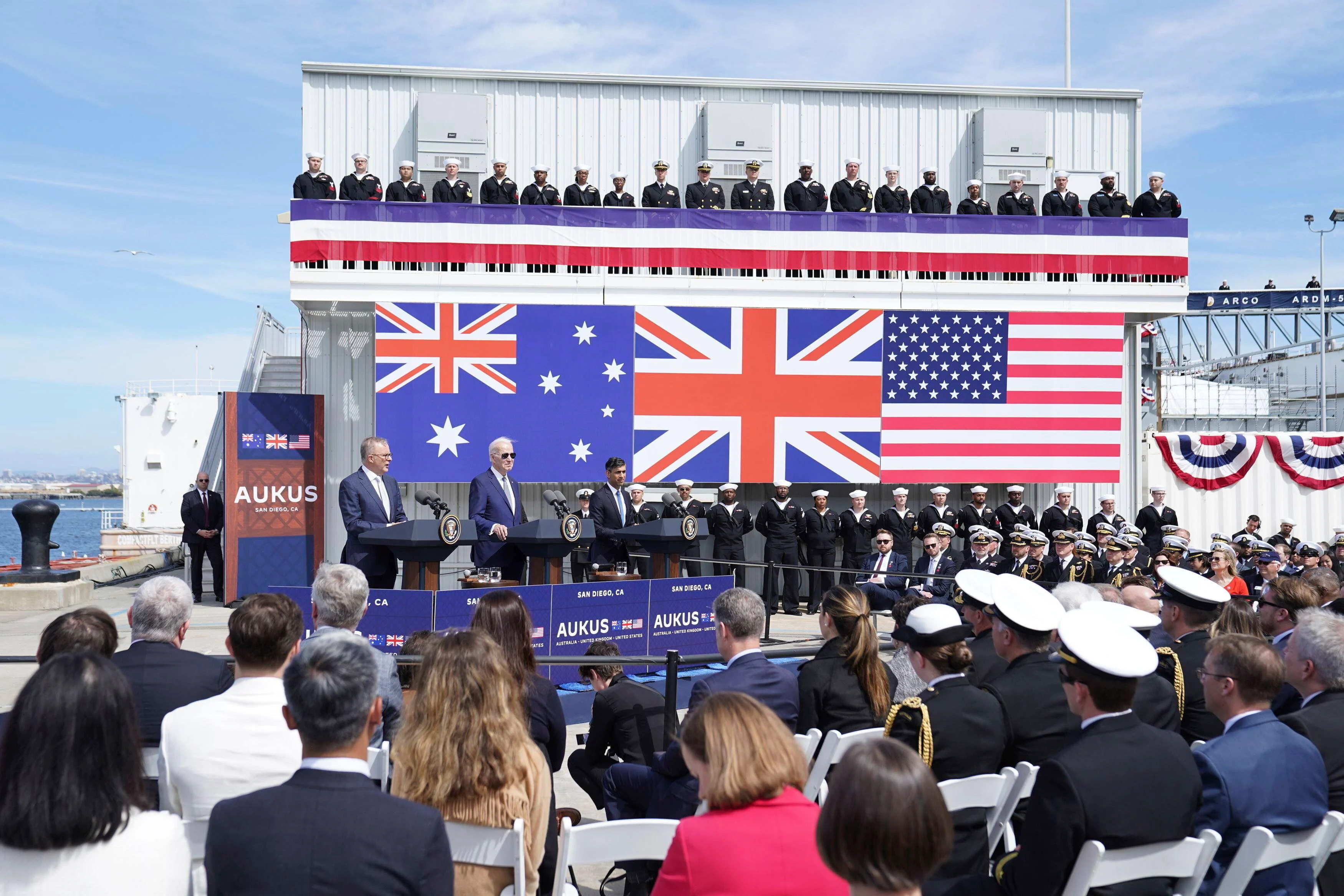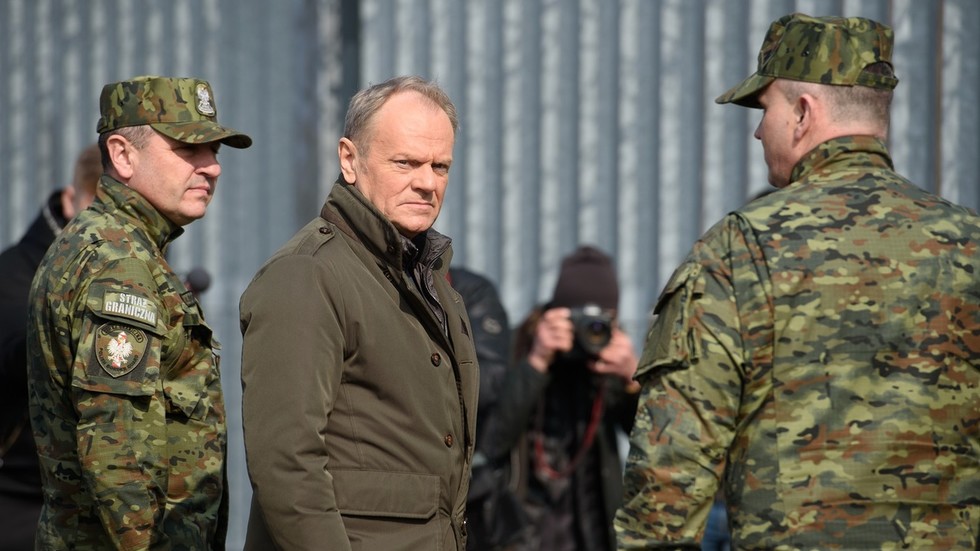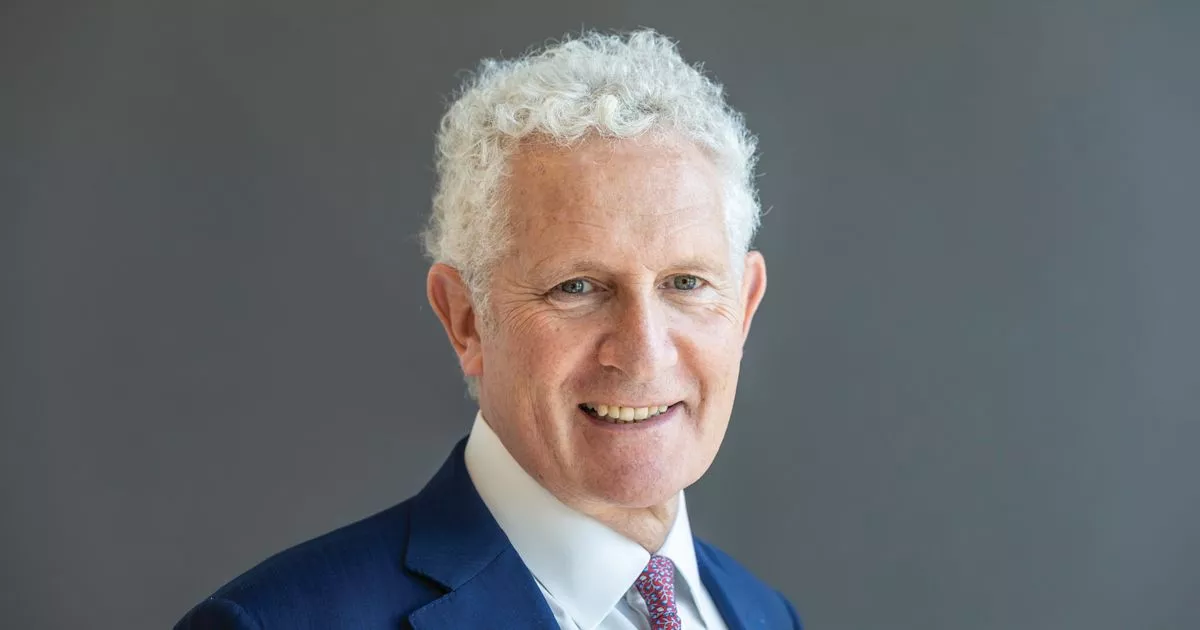By Julian Ryall
Copyright scmp

The United States is backing Japan’s entry into the Aukus security pact, with analysts calling it a long-overdue move to harness Tokyo’s advanced defence technology and bolster Western military cooperation with a key ally in the Indo-Pacific.
Quoting an unpublished US State Department report to Congress, Bloomberg reported on Thursday that Washington had a “positive assessment” of Japan joining the trilateral alliance, which was formed in 2021 between the US, Britain and Australia.
Pillar One of the present arrangement is focused on Australia acquiring nuclear-powered attack submarines and the stationing of both US and British nuclear submarines in Australia.
The State Department report says Japan has “expressed interest” in a range of ongoing security projects related to Pillar Two of the pact, which is designed to promote collaboration in several key areas: undersea capabilities, quantum technologies, artificial intelligence and autonomy, advanced cyber, hypersonic and counter-hypersonic capabilities and electronic warfare.
“Assuming this report is accurate, I would think this is a logical next step and, if anything, the surprise is that it has actually taken so long,” said Robert R. Eldridge, founder and president of The Eldridge Think Tank and a director of the Hawaii-based Global Risk Mitigation Foundation.
“I think it is also very likely that Japan looks at it the same way, that no country can have all the technology and insight to allow it to do everything on its own,” he told This Week in Asia, adding that there were “clear advantages” for Tokyo joining Aukus in terms of interoperability of systems, lower co-development costs and potentially in sales of new systems.
Aukus is widely perceived to have been formed in response to growing concerns over China’s increased maritime presence in the Indo-Pacific region. Soon after its creation, Beijing condemned the alliance for risking “severely damaging regional peace” and suggested that it had a “Cold War mentality”.
Under Pillar One, Australia plans to acquire at least eight nuclear-powered submarines armed with conventional weapons, with the first delivery scheduled for 2032. Until the delivery of these vessels, Australia may lease or buy other submarines from the UK or the US.
While Pillar One is expected to take more than 20 years, there is anticipation that progress can be more rapid on Pillar Two projects.
Japan would be a valuable partner in the alliance due to its common interests with the current Aukus partners, Eldridge said.
“Japan has advanced technological capabilities, it has excellent ports and maintenance facilities, it is a strong and stable democracy with a solid economy, while there is also a strong historical attachment to both the UK and the US,” Eldridge said.
James Brown, a professor of international relations at the Tokyo campus of Temple University, agreed that Japan is an obvious choice for any new Aukus partner, although he suggested that there may be other considerations.
“There are concerns about the US and the way it perceives Aukus,” he said, including whether Washington should even remain a part of the alliance and the wisdom of sharing its state-of-the-art submarine and other technologies with other nations.
The US would undoubtedly benefit from the knowledge of its allies, particularly in the area of hypersonic weapons and countermeasures, “an area in which the US is struggling to keep up”, according to Brown.
Eldridge also played down suggestions that Tokyo is being considered as an addition to Aukus as a counterweight to a potentially weakened Quad, the security dialogue that brings together Australia, Japan, the US and India.
“Most people understand that the Quad is not a security alliance, so the Quad can do what Aukus cannot do and vice versa,” he said.
Concerns have been raised in recent months about India’s ongoing commitment to the Quad, particularly given its increasingly close ties with Russia and China.
Indian Prime Minister Narendra Modi attended the Shanghai Cooperation Organisation earlier this month and met Chinese President Xi Jinping. He has been resisting pressure from the US and other countries to stop indirectly assisting Moscow’s war in Ukraine by not purchasing Russian oil and weapons.
“India has been close to Russia for a long time and for understandable reasons, so I would not say that Modi is getting close to Moscow now,” Eldridge said.
Noting it was “significant” that Modi did not attend the recent Victory Day military parade in Beijing, Eldridge added: “As a national leader, Modi is just keeping all his options open … I am optimistic that India will do the right thing if something really bad does happen.”



